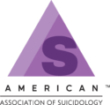Planned Giving
Remembering AAS In Your Estate Plans
When you remember AAS in your estate plans, you are providing AAS the power to continue its work in years to come. Planned giving involves integrating your charitable gift into your overall financial, tax and estate planning objectives to maximize…
Wills and Bequests
Leaving funds to AAS is a meaningful way to ensure AAS’s future financial security while you save on estate taxes. A bequest to AAS, fully deductible for estate tax purposes, might place your estate in a lower tax bracket. You may…
AAS’s Gift Planning Options
Charitable Remainder Trust: A legal agreement under which a donor funds a trust that provides income to the beneficiaries for life, or for a term of years, after which the…
When you remember AAS in your estate plans, you are providing AAS the power to continue its work in years to come.
Planned giving involves integrating your charitable gift into your overall financial, tax and estate planning objectives to maximize benefits for you and for AAS. Make a contribution to AAS and receive valuable tax advantages. Careful planning of your will, trust, insurance policy, and other financial vehicles and including AAS in those plans will help fulfill AAS’ mission.
Leaving funds to AAS is a meaningful way to ensure AAS’s future financial security while you save on estate taxes. A bequest to AAS, fully deductible for estate tax purposes, might place your estate in a lower tax bracket. You may bequest cash, property, or appreciated securities.
An unrestricted gift enables AAS to use the funds to support whatever programs it deems most urgent at the time. Or you can specify how your gift will be used. If you plan to make a restricted gift, contact AAS to ensure that we can meet the conditions specified in your will.
Suggested Wording for a Specific Bequest:
“Leave [dollar amount] to the American Association of Suicidology, a non-profit corporation having its principal office at 448 Walton Avenue, #790, Hummelstown, PA 17036, or its successor, to be used for general purposes of the organization.”
Suggested Wording for a Residual Bequest:
“All the rest, residue and remainder of my estate, real and personal, give, devise and bequeath to the American Association of Suicidology, a non-profit corporation having its principal office at 448 Walton Avenue, #790, Hummelstown, PA 17036, or its successor, to be used for general purposes of the organization.”
Charitable Remainder Trust:
A legal agreement under which a donor funds a trust that provides income to the beneficiaries for life, or for a term of years, after which the remainder of the trust is distributed to AAS and/or to other charitable organizations. This kind of trust allows you to lower your tax impact by pledging some of your assets to AAS while you receive yearly income payments. For the donor who has highly appreciated, non-income, or low-income-producing assets, converting those assets into income can result in high capital gains taxes on the appreciation. By transferring the asset to a charitable remainder trust, the donor can create a tax-free environment in which to sell the appreciated asset. This enables the trustee to reinvest the entire proceeds and produce a higher income stream. There are several different types of trusts that you can establish with AAS as a beneficiary that will reduce your tax burden.
Charitable Remainder Unitrust:
The most common kind of trust vehicle. After establishing this trust, the donor receives an annual lifetime income. Upon the donor’s death, the charity receives the rest of the trust. In this kind of trust, the donor usually retains the right to a fixed percentage of the fair market value of the trust assets, to be valued annually. If the value of the trust assets increases, so does the annual return. If the value of the trust assets decreases, the annual return decreases.
Charitable Remainder Annuity Trust:
Similar to the Unitrust above but pays a fixed dollar annuity each year, year after year. The increase or decrease in the value of the trust does not affect the yearly payout to the donor.
Charitable Lead Trust:
This trust is the opposite of a charitable remainder trust. It is an excellent method of supporting AAS while you are alive. When you establish a Charitable Lead Trust, AAS receives income for a set number of years. At the end of the set time period, your heirs inherit the assets of the trust.
Life Insurance:
The easiest type of planned gift to make to AAS. Most people own life insurance policies. Many have outlived their original purpose. By contributing your policy to AAS, you are entitled to a tax deduction for the policy’s full cash value. You can transfer ownership of a policy to AAS or simply name AAS as a primary or secondary beneficiary of the policy.
To learn more about planned giving please contact Robert Coffey, Director of Development at rcoffey@suicidology.org.
Important Note: In all cases, it is advisable for you to consult your own financial planner, tax or, legal advisor when you consider making a planned gift to AAS.
